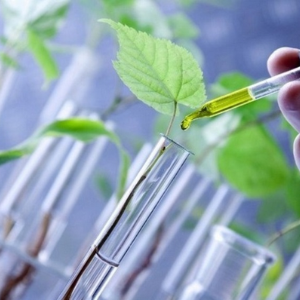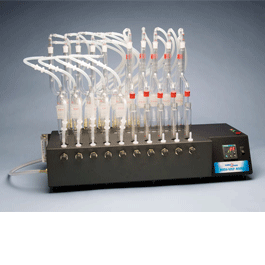In the world of scientific research, laboratory equipment is an absolute must have. Without it, analyzing data, studying reactions and conducting experiments would be a much more difficult task. On top of that, for safety reasons, lab equipment preventive maintenance should be checked regularly to ensure its proper functioning.
Every industry or sector requires specific tools and instruments. For instance, chemistry labs need Bunsen Burners and retorts, while psychology and sociology require computers and surveys. Besides, lab accessories such as test tubes, petri dishes and pipettes are fundamental for most disciplines. Also, other items such as fridges, incubators and centrifuges are important.

Types of Laboratory Equipment
Laboratories involve many different types of equipment, depending on the kind of research companies or universities are conducting. However, some instruments are standard pieces of every lab’s inventory. Here are some of them:
- pH meters
- Scales
- Spectrophotometers
- Microscopes
These tools allow scientists to accurately measure physical phenomena, analyze reactions, and observe specimens in detail. They also provide precise results that can make further experiments much easier.
The Role of Lab Supplies Suppliers
In addition to these basic supplies, laboratories need to constantly replenish their inventory with consumables and components. To do this, they can use local distributors or specialized online stores. There are dozens of retailers that offer laboratory supplies either for domestic or international customers, but only competent providers can guarantee the highest quality products.
The most trusted suppliers offer a wide range of products ranging from general chemicals to complex machinery. They can also provide personalized advice, helping you choose the best equipment for your research needs. Furthermore, when purchasing large quantities of lab products at once, they usually offer discounts and other attractive deals.
Quality Matters
When viing for lab materials, quality should always come first. Poor quality products not only produce inaccurate results, but also present a risk of explosion or fire. Fortunately, certified vendors sell only high-grade materials, ensuring that all machines, components and gadgets comply with safety standards.
Moreover, they often provide support services in case of malfunction or technical failures. This includes troubleshooting, repairs and even replacements, saving you the hassle of contacting the manufacturer yourself. As a final point, you can find reliable lab suppliers by consulting ratings and suggestions from specialized forums.
All in all, laboratory equipment is absolutely necessary for both scientific work and safety. Whether you are looking for basic tools, consumables or complex machines, you should always take into account the quality and reliability of the supplier. Moreover, equipment preventive maintenance should never be neglected.
Laboratory equipment refers to tools and devices which are used to perform experiments, tests, and other actions in a laboratory setting. These pieces of equipment are essential components of labs and are used in a wide variety of scientific fields, including in chemistry, biology, physics, and engineering. Some common examples of laboratory equipment include microscopes, Bunsen burners, balances, lab glasses, centrifuges, and test tubes. Microscopes are used to magnify materials, Bunsen burners are used to heat liquids and reactions, balances are used to measure mass, lab glasses and test tubes are used to contain materials during experiments, and centrifuges are used to separate and purify samples. All of these pieces of equipment, along with many others, play an important role in allowing scientists and researchers to conduct experiments and make new discoveries.

